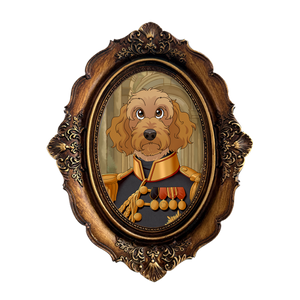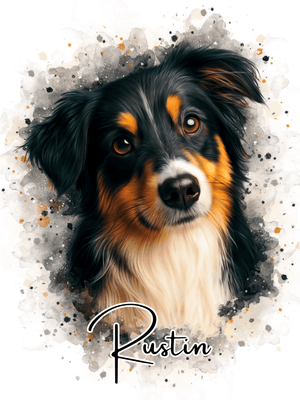How Will I Know if My Guinea Pig is Sick?
Guinea pigs are adorable pets. They are easy to care for, provided that we give them the right conditions to live in. However, no matter how hardy these animals are, they can still get sick from time to time. They can also get easily stressed, so you need to stay calm whenever you handle or observe them. In this article, we will show you some of the reasons why your guinea pig may get ill and how to monitor and watch them for possible symptoms.
First off, if you sense that something is wrong with your pet, immediately bring it for a check-up with your trusted veterinarian. Make sure to give any medications prescribed by the vet, and NEVER self-medicate. It is better to trust professionals when diagnosing your pet to ensure no other complications will arise.
What are the signs and symptoms of a sick guinea pig?
Guinea pig symptoms are usually hard to diagnose. By the time the signs of sickness appear, your pet may be sick for some time already. We recommend not waiting for a few days before you get them to see the vet when you suspect that something off is happening to them. Remember that as you delay, illness can rapidly spread on their tiny bodies. Remember that being early to diagnose is better than being late when it comes to your pet's health.
Ileus
You may observe that your guinea pig is losing its appetite. When this happens, continue feeding their everyday food. Since their intestines are pretty small and delicate, remember DO NOT change their food while they are sick. If you want to try another form of diet, do this when your pet has finally recovered. Consider feeding fresh food and cut it into bits and pieces so that your guinea pig can process its food easier. Leave a water bowl filled at all times to prevent dehydration. If in case your pet is not able to eat properly, consider feeding it with a syringe.
If ever your guinea pig is still not eating after you did everything, it may have a condition called Ileus. This condition happens when your guinea pig is not eating enough, and no food goes into its digestive tract. This situation causes gas to build up in its stomach and intestines, which produces intense discomfort in your pet and can be potentially fatal in the long run if left untreated. If you see that your pet is not touching its food and not producing enough stool, Ileus could be the problem. Bring your guinea pig to the vet immediately to get a proper diagnosis.
Observe some major stressors that your pet could have experiences before its loss of appetite. Basic things such as moving its cage's location or the presence of lice in its skin can cause your guinea pig to stop eating. Monitor its food intake and ensure that its environment is always clean.
Ovarian Disease
Female guinea pigs often develop uterine and ovarian issues as they age. To prevent this from happening, consider spaying your pet. Spaying will also prevent overpopulation, especially when your female guinea pig is living with a male. Kindly wait for your guinea pig to be at least six months old before you bring it to the vet for spaying. This procedure will benefit your pet in the long run, and you'll surely be able to be with them for a more extended period without worrying about cancer and other unwanted complications.
Ectoparasites
If your guinea pig is always scratching itself and has some bald patches all over its skin, your pet may be suffering from lice or mites attack. These tiny, almost microscopic creatures are troublesome, but thankfully they are easy to treat. First off, observe the extent of the parasitic attack. If your pet is developing some bald patches on the back of its ears and is experiencing hair loss, bring it to the vet immediately. Your vet will prescribe the necessary medication to prevent infection from spreading. It is good to note also that ectoparasites can easily spread from one guinea pig to another. Remember that whenever you suspect that your guinea pig is sick, separate it from other guineapigs on the cage to contain the infection.
Always change their beddings too and keep their cages clean to discourage the breeding of these parasites.
Respiratory Infections
Guinea pigs are sensitive to cold air. If you place their cages near an open window, door, or any open area in your house, they may develop respiratory diseases and even pneumonia. They can even get sick by catching a cold from your ill cat or dog, so make sure to put your guinea pig in a safe place, away from possible allergens or diseases. Always wash your hands before and after handling them as well.
There are many other diseases that your pet can experience, so it is best to always observe your guinea pig closely at regular times. If you see something suspicious, take it to the vet for a thorough examination. The basic things to look out for are the following:
- Make sure your pet is eating well and defecating in the usual manner.
- Avoid placing its cage near cold areas.
- Sanitize and wash your hands before and after you play with your pet.
- Sterilize your guinea pig's food and bedding regularly. You can put it inside a refrigerator to kill bacteria and other parasites.
Basic care tips for a sick guinea pig
- Instead of placing your pet on loose bedding, consider using clean towels instead. Your guinea pig can walk easier on this, and you can closely monitor its stool and urine output too.
- Since guinea pigs quickly get cold, make sure to provide them with extra warmth when they are sick. You can purchase heating pads, those that are used to relieve sore muscles and joint pains. You can opt for a DIY approach by wrapping a water bottle with a warm cloth and place it on the side of the cage. Consider talking to your vet about the best way to warm your pet if you are in doubt.
- Weigh your guinea pig daily, especially if it is sick. Monitor your pet closely and see if it is time to hand feed it. Hand-feeding will greatly improve your pet's condition and at the same time increase your bond and connection too.
If in case things go wrong, don't blame yourself. Not everything is under your control. What's most important is that you did everything you can to ensure your pet's health and safety. Focus on the things that you did right, and learn from your mistakes. Moving forward, we are sure that you'll become a better pet parent in the future if you don't give up!
Sources:
www.thesprucepets.com
www.recommended.tips/help-sick-guinea-pig/
http://www.guinealynx.info/handfeeding.html







